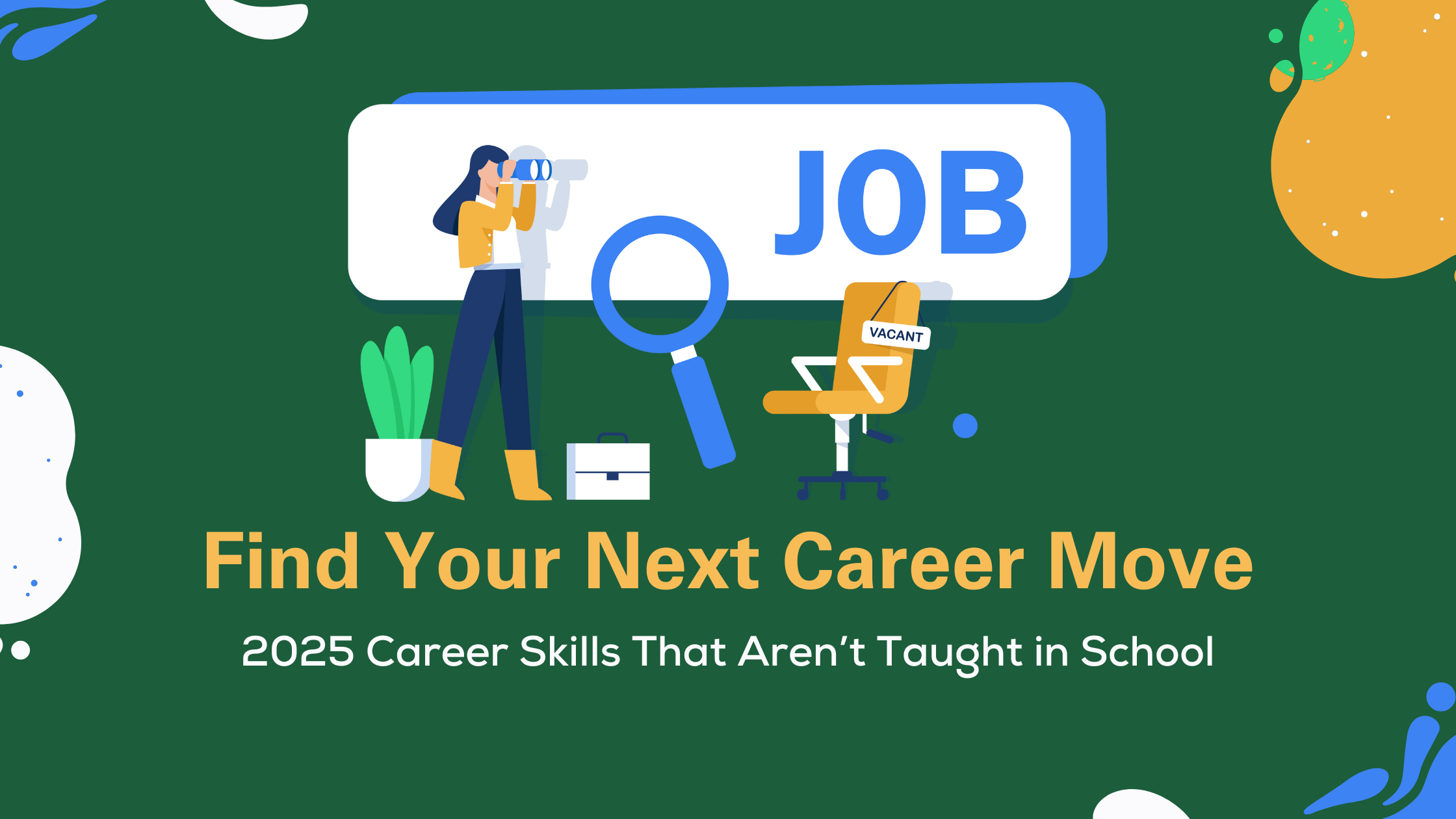2025 Career Skills That Aren’t Taught in School
2025 Career skills As AI disrupts job markets and employers evolve expectations, traditional education alone no longer equips graduates with the skills employers urgently need. The World Economic Forum’s Future of Jobs Report 2025 reveals that nearly 39% of job skills will be outdated by 2030, prompting a major shift in skill demand Business Insider+15World Economic Forum+15Coursera Blog+15.
🔍 2025 Career skills Key Insights from the WEF Report
- Between 2025 and 2030, 170 million new jobs will emerge, while 92 million roles decline—resulting in a net gain of 78 million jobs Coursera Blog+2World Economic Forum+2World Economic Forum+2.
- The fastest-growing skills include:
- AI & big data, networks & cybersecurity, technological literacy
- Analytical thinking, resilience, flexibility & agility
- Leadership, creative thinking, curiosity & lifelong learning
- Environmental stewardship and systems thinking The Australian+10World Economic Forum+10World Economic Forum+10Search Engine Journal.
- In contrast, skills such as manual dexterity, endurance & precision, and even basic literacy and numeracy are expected to decline World Economic Forum+10World Economic Forum+10Search Engine Journal+10.
1. AI & Data Literacy 2025 Career skills
Why it matters:
Mastering generative AI tools, prompt engineering, and data analytics is now essential. Employers view AI and big data as the top-growing skill set World Economic Forum+8World Economic Forum+8Coursera Blog+8.
Why schools fall short:
Most curriculums lack applied AI modules, ethics case study analyses, or data-driven project work.
How to develop it:
- Engage with AI tools like ChatGPT, Bard, or Claude for ideation and automation.
- Learn analytics platforms (e.g. Tableau, Power BI).
- Explore courses in prompt engineering, ethical AI strategies, and practical AI applications on platforms like Coursera or edX .
Internal link for audience:
See how you can integrate AI into daily workflows in our post on Maximizing AI in your day-to-day workflows.
2. Network & Cyber‑Security Awareness
With geopolitical fragmentation rising, cybersecurity skills have surged in relevance—employers list them among the fastest-growing technical skills Business Insider+15World Economic Forum+15The Times of India+15.
Gaps in education: Security training is rarely practical or business-focused.
How to build:
- Aim for certifications like CompTIA Security+ or ISACA CCOA.
- Participate in hands‑on labs on platforms such as Hack The Box or TryHackMe.
Internal resource link:
Explore our deeper guide: Cyber‑security essentials.
3. Analytical & Creative Problem Solving
Analytical thinking currently tops core skill demand (69% employer consensus), while creative thinking ranks within top five (57%) World Economic Forum+4Scribd+4World Economic Forum+4.
Why schools don’t measure up: Teaching still relies heavily on standardized testing; real‑world challenge-solving is rare.
How to develop:
- Practice case studies (e.g. business use cases, design thinking).
- Take up hackathons, debate clubs, or cross‑discipline competitions.
4. Resilience, Flexibility & Adaptability
Rated 67% among core skills, these socio‑emotional traits are essential amid constant disruption .
Education shortfall: There’s minimal emphasis on stress‑management or resilience training.
How to develop:
- Practice agile methodologies (e.g. Scrum, Kanban).
- Incorporate mindfulness, reflection, and failure‑mode journaling into your routine.
5. Leadership & Social Influence
Leadership, empathy, and influence are now in high demand—ranked #3 by employers (61%) .
Missing from classrooms: Most students don’t gain real leadership or mentoring experience until workplace entry.
How to build:
- Take leadership in clubs, volunteer groups, or community initiatives.
- Practice pitching and negotiation in peer groups or competitions.
6. Curiosity & Lifelong Learning
Curiosity and learning ability are as important as deep technical knowledge (50% employer consensus) Scribd.
Why schools still lag: Fixed curricula discourage exploration, experimentation, and iterative learning.
How to develop:
- Regularly audit and update your skill set.
- Use micro‑credentials, rotational roles or cross‑disciplinary electives.
7. Environmental Stewardship & Systems Thinking
Introduced prominently in the 2025 WEF report, sustainability and system-level thinking are emerging core competencies—especially in green transition roles such as renewable energy and EV engineering Search Engine Journal+5World Economic Forum+5Drishti IAS+5.
Gaps: Few students engage with sustainability frameworks or lifecycle thinking.
How to build:
- Study ESG reporting, circular economy design, and supply‑chain sustainability.
- Volunteer for environmental projects or apply green thinking in business simulations.
8. Human-Centered Competencies: Empathy & EQ
Despite AI’s rise, human-centric skills remain irreplaceable—99% of empathy & active listening skills have very low substitution risk by GenAI Scribd+7世界经济论坛+7The Guardian+7.
Why schools don’t cover them: Social–emotional learning is still underprioritized.
How to build:
- Practice active listening, coaching, or peer mentoring.
- Seek feedback, cultivate mindfulness, and engage in cross-cultural team projects.
🧠 Real-World Voices on Missing Educational Gaps
Across public discussions, many lament the lack of practical life skills taught in school:
“Managing money, basic life skills… taxes and credit”
“Conflict resolution”
“Emotional intelligence and regulation” Reddit+1The Times of India+1
These underscore the urgent need for education systems to evolve beyond traditional academics.
Know more
- Internal links:
- External authoritative sources:
- World Economic Forum Future of Jobs Report 2025 Business Insider+6World Economic Forum+6世界经济论坛+6Search Engine Journal+11World Economic Forum+11The Economic Times+11
- Business Insider on core skills from OpenAI economist Business Insider
- The Guardian on shrinking graduate roles and AI challenges The Economic Times+4The Guardian+4New York Post+4
- FT commentary on creativity deficits in hiring Financial Times
- Times of India analysis of soft skills demand
🎯 Final Takeaway: Beyond Textbooks
Modern career readiness demands more than textbooks—it calls for a blend of tech fluency, emotional agility, ethical reasoning, and adaptability. These seven pillars—grounded in current WEF findings and real-world feedback—are the foundation of success in 2025 and beyond.
Suggested next steps for readers:
- Compare your skill gaps to these seven core competencies.
- Engage in micro‑courses, bootcamps or certifications to upskill in AI, cyber-security, or green design.
- Apply learning practically—through side projects, volunteer roles, or innovation challenges.

